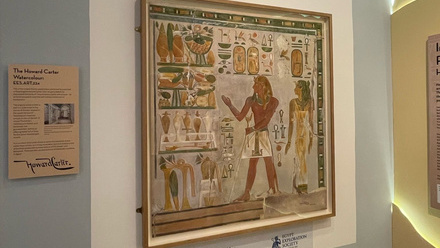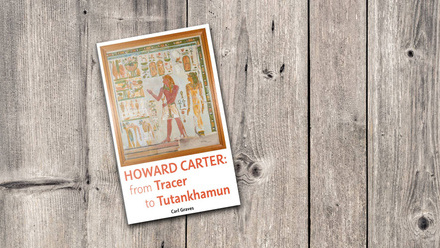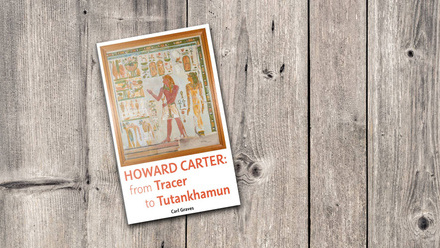Celebrating Egyptology in 2022
2022 marks one hundred years since the discovery of the tomb of Tutankhamun, a landmark moment in Egypt’s long and celebrated history. It will also be 200 years since Jean-François Champollion announced his breakthrough decipherment of the Rosetta Stone and gave us the key for understanding ancient Egyptian hieroglyphs. Both reasons for an international celebration, we hope you agree!
However, these two milestones in the history of Egyptology, also bookend a period of European control over Egypt which culminated in the granting of semi-independence from British rule in 1922 – another major anniversary. Egypt’s newfound ‘independence’ came at a time when international interest in Egypt would suddenly explode with the discovery of Tutankhamun’s tomb.
In 2022, the Egypt Exploration Society will explore these three events and how they changed the course of Egyptology and Egypt itself. A range of online events, exhibitions, and tours will explore how the legacy of these events have impacted our understanding of and attitudes toward Egyptian culture today
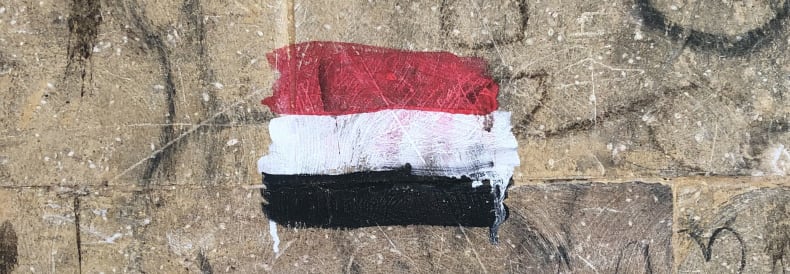
Egypt on the eve of ‘independence’
January – May
On 28th February 1922 Britain granted independence to Egypt establishing an independent Kingdom of Egypt and bringing Britain’s protectorate over Egypt, established in 1882, to a close. In reality, Britain continued to exert military control over Egypt until 1956, but what did this granting of semi-independence mean for Egyptian heritage? But did you know that this 'independence is not the only national anniversary in 2022?
While politicians like Saad Zaghlul worked hard to achieve Egyptian independence in 1922, Gamal Abdel Nasser Hussain and the Free Officers worked hard in 1952 (30 years later, and 70 years ago in 2022) to finally shake off the yoke of British control. The Free Officers’ coup in July 1952 led to the nationalisation of the French-run Antiquities Service and eventual end of the parliamentary monarchy under British-backed King Farouk. Our programme will explore these events and what these changes meant for Egyptology in Egypt.
But the anniversaries don't stop there! We have some anniversaries of our own to unpack too...
The Egypt Exploration Society was founded in 1882, the same year that Britain invaded Egypt and brought it under the control of the British Empire. Between 1882 and 1922, the EES was instrumental in establishing British archaeology in Egypt and worked closely with colonial administrators to secure its work. 2022 also marks the 140th anniversary of the foundation of the Egypt Exploration Society, as well as 130 years since the passing of its co-founder, Amelia Edwards. Both the Society and Edwards are not without their problematic pasts and events in 2022 will explore these pioneers in British Egyptology as well as the complex relationship between archaeology and colonialism perpetuated by them. We will also investigate the ongoing legacy of British colonial control in Egypt during this anniversary of its ‘independence’.
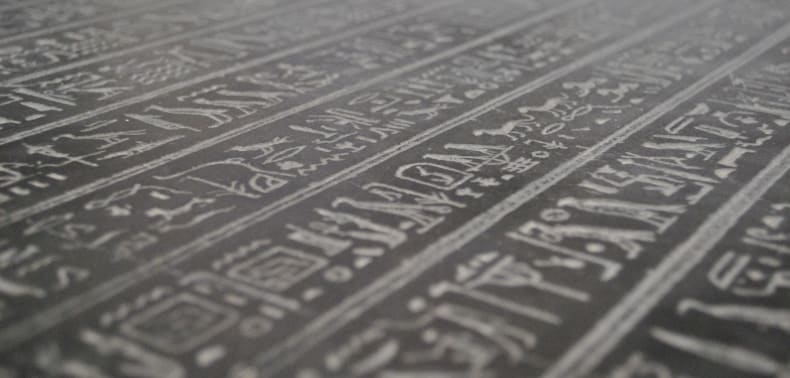
The walls speak
June – September
On 14th September 1822 Champollion made a breakthrough in understanding the phonetic nature of Egyptian language and reportedly declared to his brother, Jacques-Joseph, "Je tiens l'affaire!?" ("I've got it!") and quickly fainted from his excitement! Later that month, on the 27th September, Champollion presented a draft of Lettre à M. Dacier relative à l'alphabet des hiéroglyphes phonétiques (Letter to M. Dacier concerning the alphabet of the phonetic hieroglyphs) at the Académie des Inscriptions et Belles-Lettres. This Lettre, published in October 1822, marks the decipherment of Egyptian hieroglyphs and what is often considered the start of modern Egyptology. Our programme will explore this landmark moment in Egyptology, but also other characters such as Ibn Wahshiyyah and Thomas Young and their contributions to the understanding of ancient Egyptian language. In this theme, we’ll also hear from epigraphic projects in Egyptology today and how modern research continues to help the ancient walls speak again.
Tut-mania
October – December
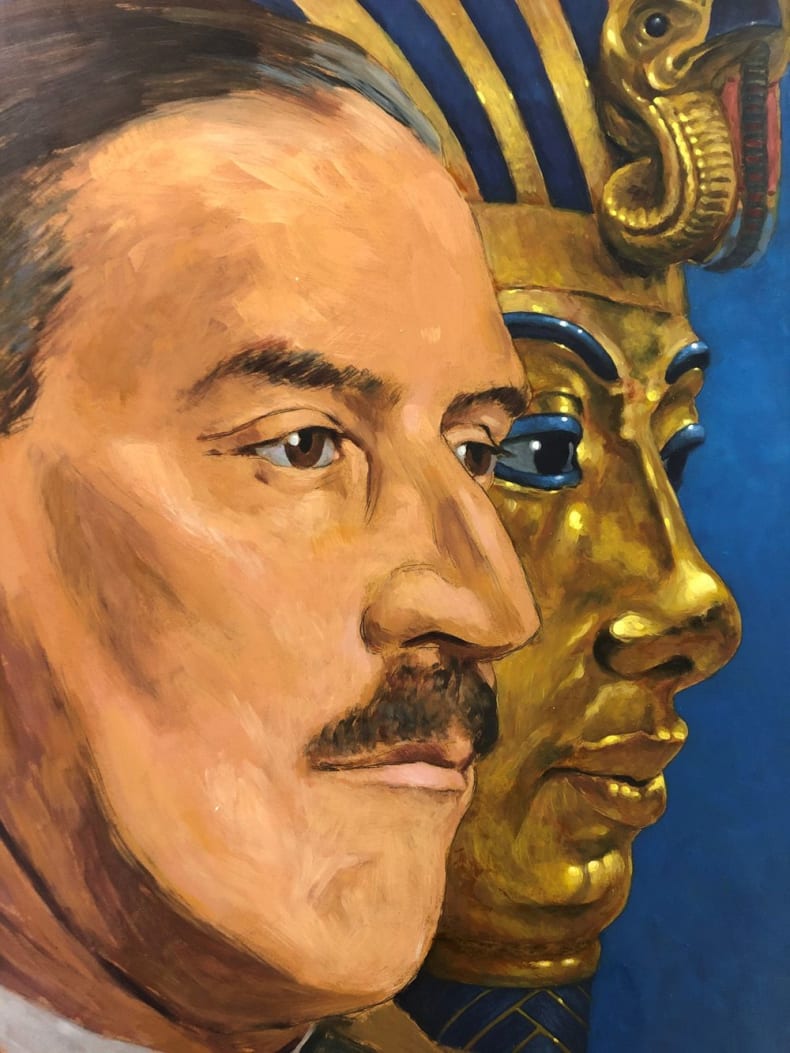
On the 4th November 1922 Howard Carter recorded in his diary the discovery of an undisturbed burial in the Valley of the Kings. Two days later he summoned Lord Carnarvon, his sponsor, to Luxor to investigate further. It wasn’t until the 26th November that the world learned of the great wonders yet to be unearthed. Tut-mania took over the world and ‘Howard Carter’ and ‘Tutankhamun’ remain household names to this day. Carter’s somewhat unconventional career as an archaeologist began some 30 years earlier with the Egypt Exploration Fund and took several controversial twists along the way. This season we’ll be unpacking Carter’s career, those he worked with, and his legacy in Egyptology today. In particular we’ll be taking a look at his early Egyptology career and pioneering work in epigraphic recording.
In Carter’s Footsteps
3rd – 14th October 2022
A private members-only tour with Ancient World Tours
Escorted throughout by Dr Carl Graves, Director of the Egypt Exploration Society
2022 marks the 100th anniversary since the discovery of the tomb of Tutankhamun by archaeologists under the direction of Howard Carter. But Carter’s archaeological journey started 30 years earlier in Middle Egypt as a young artist working for the Egypt Exploration Fund. His somewhat controversial career involved a vast network of British, American, and Egyptian archaeologists, Egyptologists, politicians, and funders, culminating in the most celebrated archaeological discovery in the world. Join Dr Carl Graves on a tour of sites in the Nile Valley through the lens of archival records, photographs, and publications investigating the development of Carter’s career before Tutankhamun and his legacy as the most famous archaeologist in the world.
For every booking on this tour a donation to the EES is included.
THIS TOUR IS NOW SOLD-OUT: To be added to a waiting list please email [email protected].
With all these anniversaries in one year, you might be wondering what new developments will occur in 2022!
The Egypt Exploration Society would like to thank Fatma Keshk and Prof Donald M Reid for their guidance in planning the above programme.

